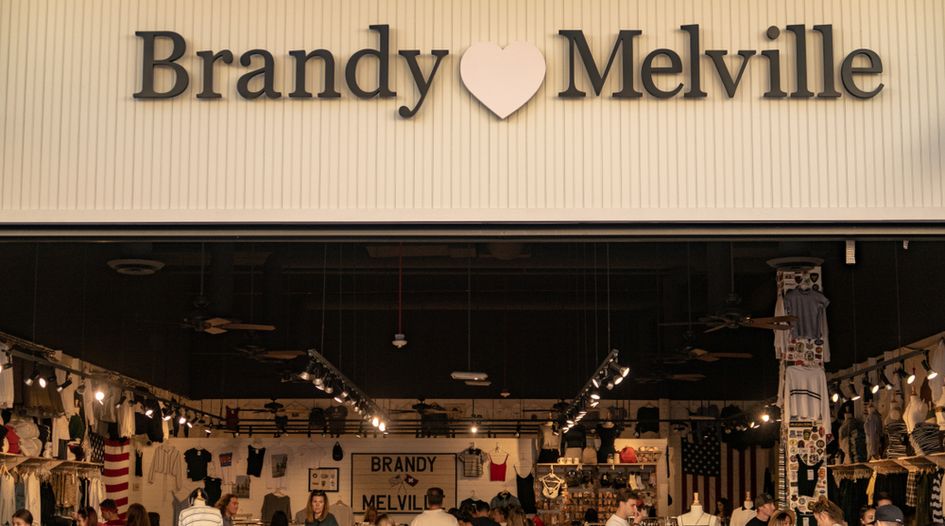Brandy Melville is a highly popular clothing brand among teen girls and young women. They’re known for their basic, girly aesthetic that has been trending in recent years, and is in touch with what young girls like and what they want.
However, in the new documentary Brandy Hellville: The Cult of Fast Fashion, company insiders reveal many controversies and dark stories about Brandy Melville and what it’s really like to work there.
Brandy Melville, first created in Italy in 2009, defines itself on social media as a simple and Californian style. The store became famous without the use of advertisements, instead relying on social media influencers, most of them teen girls, to promote the clothes on platforms like Instagram and Tiktok.
Eventually the brand would take off on social media, leading to stores opening all over the world and the creation of a website where people could purchase their favorite Brandy Melville products online.
This rise to fame was not without controversy, the first of these being that workers of color were to work in the back of the store, while the white workers would work the front of the store and would greet customers. These racist practices were shamelessly endorsed by Brandy Melville’s CEO, Stefan Marsan.
The documentary displays Stefan Marasan’s reluctance to hide his racism at all. Anytime he didn’t like a girl who was working there, a photo would be sent to him of her and he would just fire them. However, if there was a girl who would fit his idea of beauty, she would be hired on the spot, regardless of her work experience or qualifications, which is especially disgusting considering that most of the employees were underage.
There was an awareness amongst employees of what was happening, but they kept on business as usual.
Another controversy was with the sizes of the clothes. In the fashion industry today, many clothing brands have catered and tried to make their clothes in a diverse range of sizes in order to accommodate as many body types as possible.
However, for Brandy Melville there’s no small, medium, large sizes, like most people are used to. Instead, it is one size fits all, and that size is “skinny.”
People would lose weight to fit into Brandy Melville clothes just because they wanted to fit the image of a “Brandy girl.” Many people have complained about the sizing, but Stefan believed that people losing weight for his clothes was actually a good thing.
This rubbed people the wrong way because the message of having to fit into Brandy Melville to be perfect is extremely damaging and detrimental to young girls. According to some of the employees from the documentary, many of them were recovering from eating disorders and they were pretty triggered by all the very petite sizes all around them and they had to represent an unobtainable size for other little girls to fit into.
However, an ex-sales representative from the documentary claimed that still didn’t stop people from buying from the store. The sales for Brandy Melville just kept increasing.
Brandy Melville’s clothes are produced in Prato, Italy, home to the largest textile center in Europe. And while most Americans associate Brandy’s “made in Italy” tags with high-end and luxury products, this couldn’t be farther from the truth. In reality, the clothes are produced in large warehouses little better than sweatshops.
The documentary also showcased how online shopping affects our purchasing habits, leading to gross overconsumption. This excess consumption leads to large amounts of clothing being dumped into places like Ghana, negatively affecting the residents of these countries.
Even though the documentary is mainly centered around Brandy Melville, Brandy is hardly the only company guilty of fast fashion practices. Many other companies, such as Zara, Shein and Urban Outfitters, are equally guilty of these wasteful operations.
Overall, the documentary was extremely informative and raises concerns for Brandy Melville. With the new information that the documentary shared about how toxic and damaging fast fashion is to the environment and society, the director, Eva Orner wanted it to be up to the audience and the average consumer to stop or limit their purchases from fast fashion companies.




